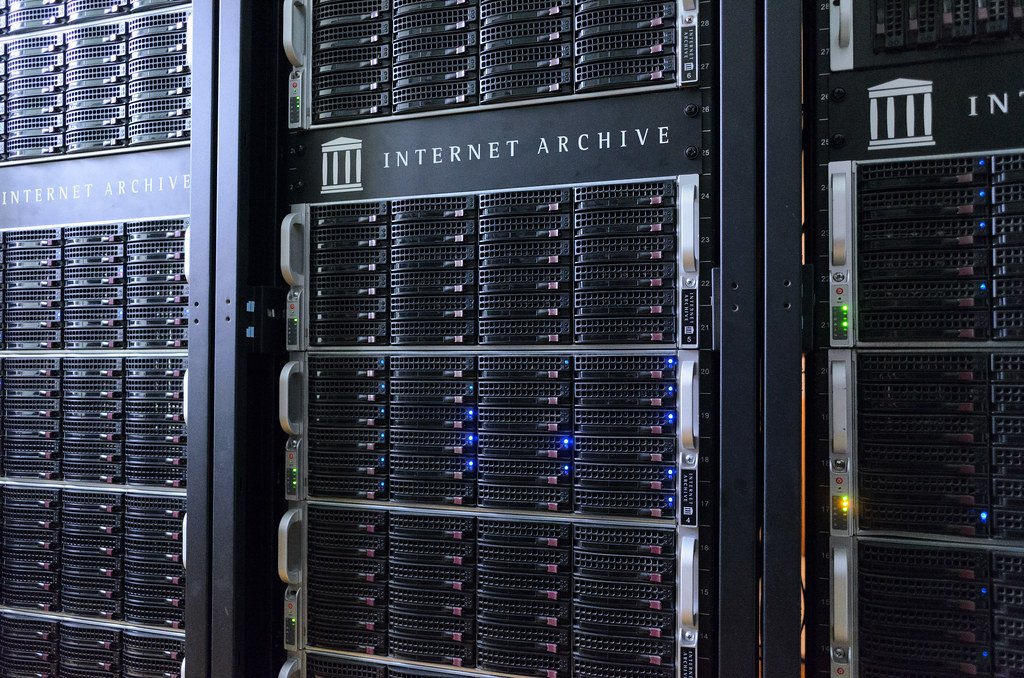Photo courtesy of drosen7900 via Flickr.
The Internet Archive database, pictured above, is housed in San Francisco, and houses billions and billions of books, movies and websites. The lawsuit threatens access to the Archive's materials, some of which are house in no other places in the world.
Arielle Cai ’27 & Sophie Frank ’26
Staff Writer | Books Editor
The fate of the Internet Archive, a non-profit organization dedicated to the preservation of books, movies and software, may be in jeopardy after a court moved to restrict the availability of their materials following a lawsuit from a group of major book publishers.
As of Sept. 11, 2023, the Internet Archive had submitted an appeal in the lawsuit.
“Now is the time to stand up for libraries,” Brewster Kahle, the founder and digital librarian of the Internet Archive, declared in a blog post on its website. Kahle believes that the court’s judgment was based on misapplying the laws and that the injunction it issued is restricting the spread of valuable knowledge.
The case has sparked the interest of many in the Mount Holyoke College community, several of whom use the Internet Archive or other online databases, such as the College’s own LITS services. “Now we have entered the digital age,” Yiling Shi ʼ27 said regarding the lawsuit. “The publishers can try to make an agreement with the Internet Archive about ways of cooperation.”
Students are one of the largest groups affected by the revoked permission for lending electronic books. The Internet Archive has long been a resource for students, providing works that are often expensive or hard to find available for public use. “Sometimes it would be more convenient to have a digital version of a textbook,” Phoebe Huang ʼ27 said. “Because of this free resource, I don't need to spend that money.”
The Internet Archive serves millions of users with its collection of billions of materials, including books, movies and websites. According to the Electronic Frontier Foundation, some of these materials only exist within the archive itself, with the digital library ensuring that these materials remain in circulation even once publishers have stopped printing them. It is not only the Internet Archive that is threatened by this decision but also digital lending systems used by libraries across the country.
In the original appeal filed on Aug. 11, 2023, four book publishers — Hachette Book Group, HarperCollins Publishers, John Wiley Sons and Penguin Random House — alleged that the Internet Archive infringed on their copyright. The publishers claimed that the Internet Archive had violated the U.S. Copyright Act, which gave copyright protections for original works to their authors. This included the rights to still photography, motion pictures and recordings.
The Internet Archive refuted the publishers’ claims, arguing that their actions constitute fair use under the U.S. Copyright Act. Nevertheless, the court granted the plaintiff’s motion to make the decision based on existing statements and evidence without going to trial and denied the defendant’s motion on March 24, 2023, according to the appeal file.
In their appeal, the Internet Archive emphasized the broader implications of the case for many institutions, especially libraries, and argued that they did not violate copyright law. They subsequently urged the court to review the case once more.
Before the outbreak of the COVID-19 pandemic, the Internet Archive worked in much the same way as a traditional library by using a system called “Controlled Digital Lending.” They scanned the pages of a physical book, uploaded the PDF to the website and only lent the book to a limited number of people at a time.
However, in response to the closure of many physical libraries during the pandemic, the Internet Archive announced the “National Emergency Library” program in March 2020, as outlined in an article from The Atlantic published in April 2023. A blog post on the Internet Archive website from March 2020 explains that during the pandemic, they suspended the waitlists for 1.4 million books in the lending library, sharing unlimited digital copies without publishers’ permission.
In the Internet Archive’s Memorandum for Summary Judgment, provided by the Electronic Frontier Foundation, one of the publishers involved in the legal dispute revoked permission for electronic lending of books that they have published. This decision extended beyond the content available on the Internet Archive and had sweeping effects on institutions around the world.
“Libraries are more than the customer service departments for corporate database products,” Kahle said in another blog uploaded on March 25, 2023. “For democracy to thrive at global scale, libraries must be able to sustain their historic role in society — owning, preserving and lending books.”
Some Internet Archive users remain hopeful for the database’s future.
“Keep going [Internet Archive], this is merely a temporal loss, we are on the right side of history,” Archive user Simon E. Matyas commented on one of the Internet Archive’s blog posts.

